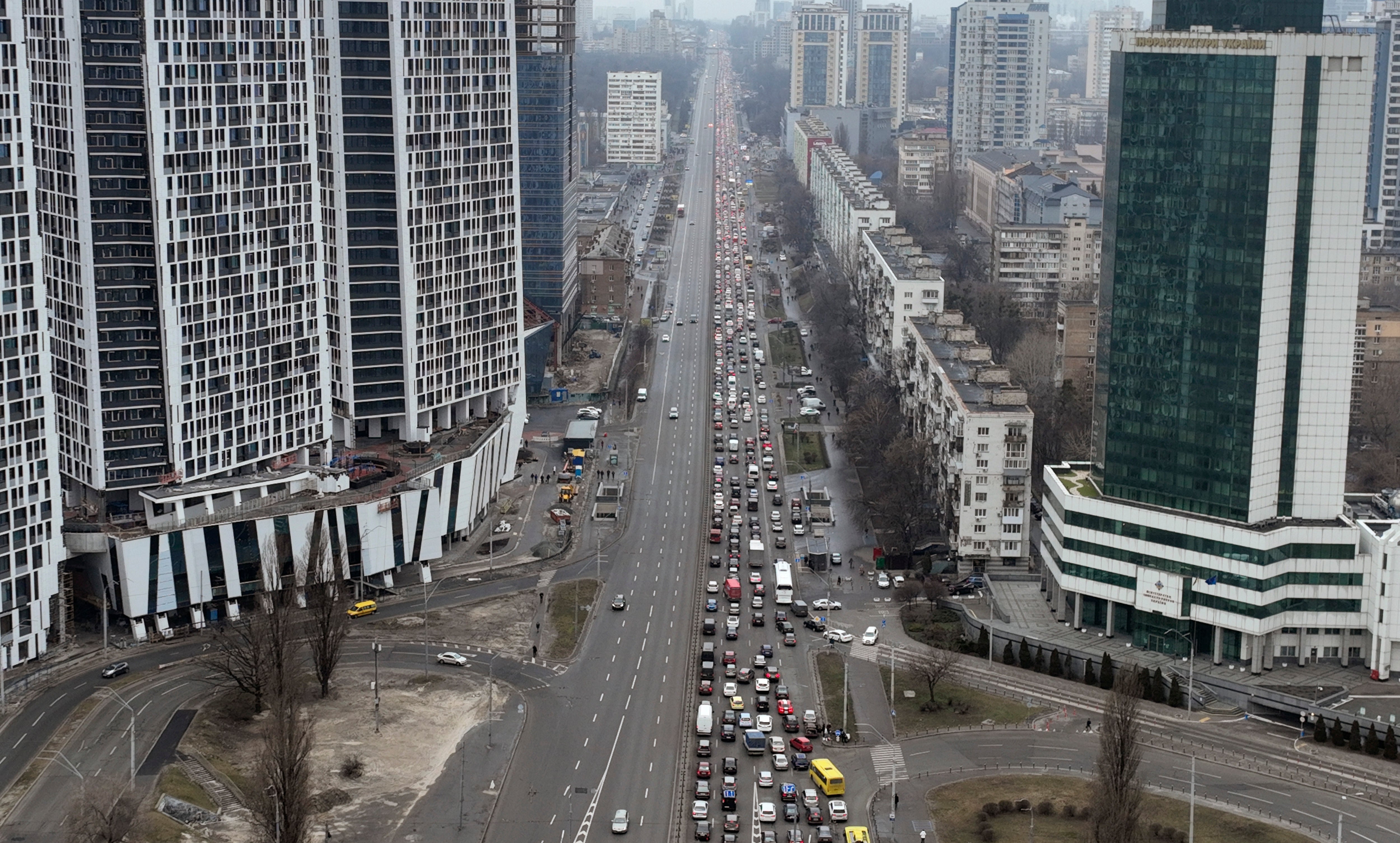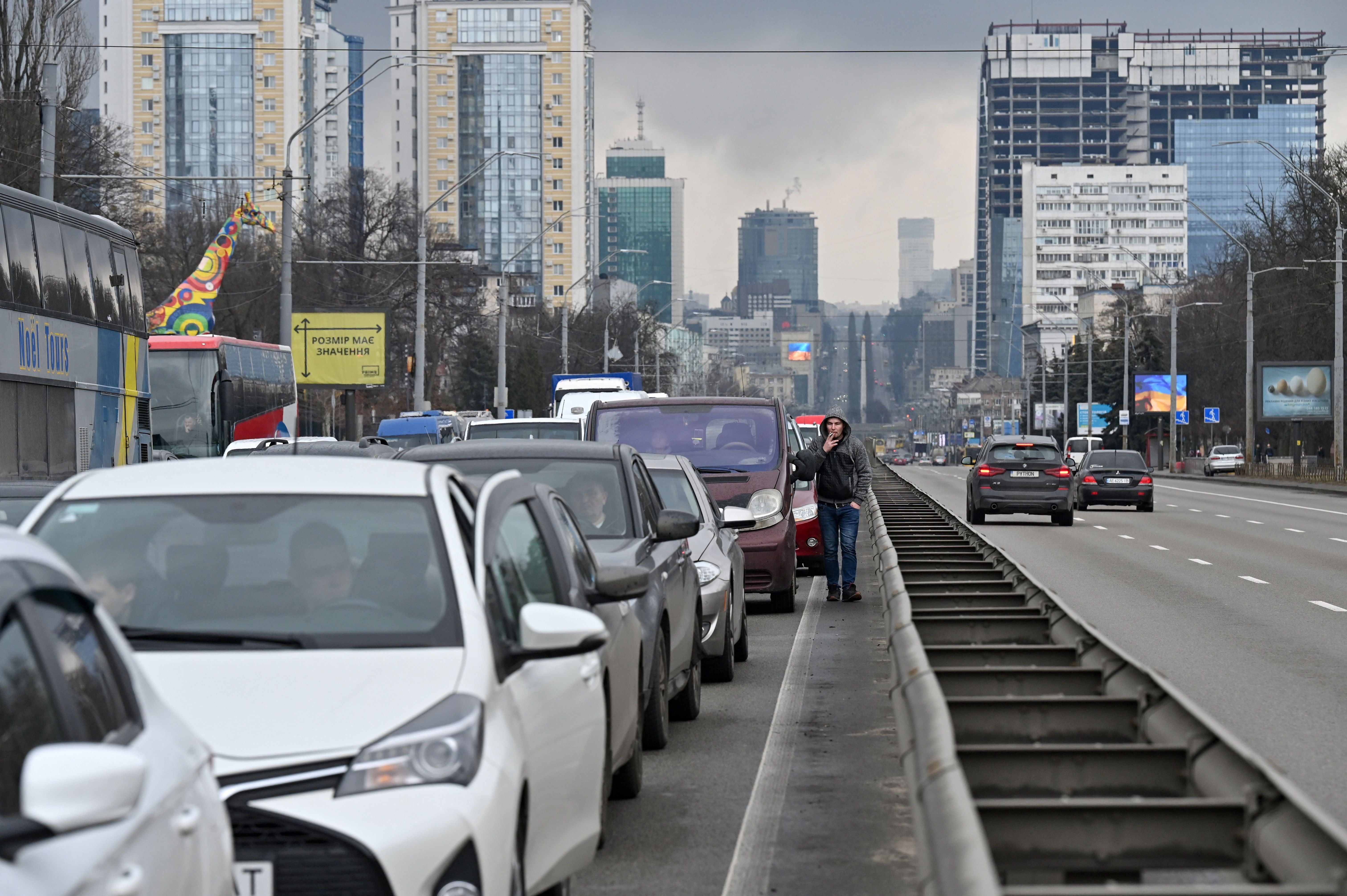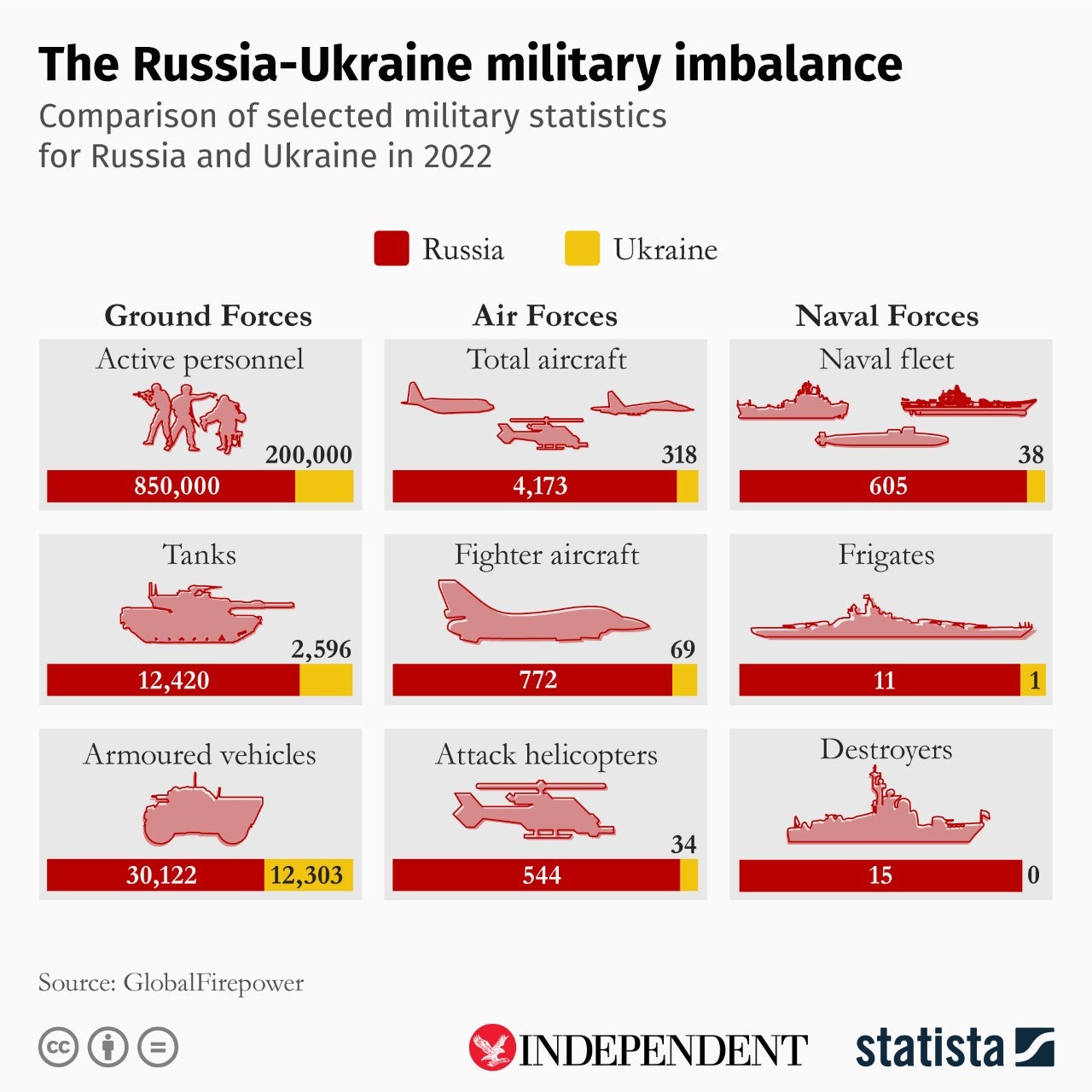Huge traffic jams in Kiev as thousands try to flee Ukraine after Russian invasion
Citizens are trying to leave the capital for other parts of the country and abroad
Your support helps us to tell the story
From reproductive rights to climate change to Big Tech, The Independent is on the ground when the story is developing. Whether it's investigating the financials of Elon Musk's pro-Trump PAC or producing our latest documentary, 'The A Word', which shines a light on the American women fighting for reproductive rights, we know how important it is to parse out the facts from the messaging.
At such a critical moment in US history, we need reporters on the ground. Your donation allows us to keep sending journalists to speak to both sides of the story.
The Independent is trusted by Americans across the entire political spectrum. And unlike many other quality news outlets, we choose not to lock Americans out of our reporting and analysis with paywalls. We believe quality journalism should be available to everyone, paid for by those who can afford it.
Your support makes all the difference.Miles of traffic jams have formed in the capital of Ukraine as citizens attempt to flee from Russian forces invading the country.
Explosions were heard in Kiev on Thursday after Vladimir Putin declared war on Ukraine and sent troops and tanks across the border.
The capital’s mayor Vitali Klitschko advised residents to stay home and remain calm, but said to pack a bag with necessities and documents in case they need to leave.
Long lines of cars soon blocked roads leading out of Kiev as people tried to leave for other parts of Ukraine and abroad, while others descended on the train station.
Countries across Europe, including Poland and Germany, have said that they will offer support to Ukrainian refugees fleeing the conflict.
Poland has been preparing for refugees from Ukraine for weeks. The country’s interior minister Mariusz Kaminski said on Thursday the government will do everything possible to ensure that they find safety.
Poland announced that it would open nine reception points near Ukraine’s border to provide food, medical assistance and information to potential refugees.
Germany will also offer support to countries in eastern Europe facing an influx of refugees, said interior minister Nancy Faeser.
German media has cited estimates that between 200,000 and 1m people could flee Ukraine to the European Union as war breaks out in the country.
"We will offer massive support to the affected states – especially our neighbour Poland – in the event of large refugee movements," Ms Faeser said in a statement.
Tom Tugendhat, chairman of the Foreign Affairs Committee, described the scenes of people leaving their homes in Ukraine as "a human tragedy".

He told BBC Breakfast: "The lines of people you’re seeing fleeing their home, each person making a decision to abandon something, somewhere ... in order to seek safety elsewhere.
"To see these columns of people forced out by naked aggression by Russia and by Vladimir Putin is horrific and extremely painful, and we should be thinking very clearly about the families torn apart, the lives separated."

Martial law has been declared in the country, which means that there is temporary military control of Ukraine, instead of regular civil functions and civil law.
Russian troops have entered Ukraine from all sides, following an announcement made by Mr Putin in the early hours of Thursday morning.

In the televised speech, Mr Putin tried to justify the invasion, saying that Russia wished to “demilitarise” and “denazify” Ukraine.
Western leaders have reacted with outrage to the news and countries including the UK, Germany and the United States have all said that harsh sanctions will be imposed on Russia.
Join our commenting forum
Join thought-provoking conversations, follow other Independent readers and see their replies
Comments